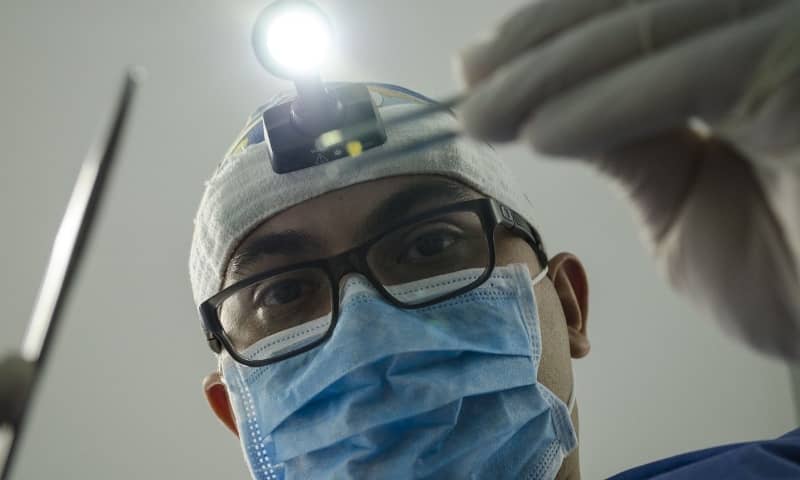Do you want to start your own medical clinic or any other business related to medical practice? Building a steady career in healthcare is a compelling and rewarding venture. However, navigating through the ever-changing medical landscape in Australia can be challenging when starting a medical practice. That is why you must know how to control the business aspect of your practice to be the best clinician in your area.
Several advancements and developments in patient data storage and tax laws may readily impact your business. But, having the right tech solution will help ensure that your practice is optimized financially and can deliver a patient-oriented experience to clients.
Now, if you’re determined to start in medical practice this 2021, here is an extensive guide on how you can set up a successful business in wellness. Here, you will be provided with the types of medical practice you may consider starting, steps you need to take, considerations to think about, and more!
Why Start a Private Medical Practice?
At the onset, you might ask, do you have to be a licensed doctor to start a private medical practice in Australia? You don’t have to have a healthcare license to be a corporate owner, a principal, or a partner in a clinic. However, you must contact your respective medical board or association first, as comprehensive policies may vary per specialization.
As you can observe, there is a headlong pace of centralization within the healthcare industry. The blame is on the large upfront expenses, the difficulty of starting a private practice, and inherent risk, especially in the current economic situation. Studies have shown that over 60% of community hospitals belong to a bigger enterprise healthcare system.
This is because, for many medical professionals, working with conglomerates is the sole realistic choice there is. Above all, after spending so much of your time, money, and effort in medical school, stepping into a well-paying job with well-established names and business operations poses less risk and trouble.
But, when opening a private practice, you are given more autonomy to determine your business’ workflow. The strong sense of personal agency and ownership that comes along with running a medical practice on your own doesn’t match those of a larger healthcare system.
It’s no secret that it will be difficult initially, but the right information is always within your reach! For example, if you’re planning to open a private dental clinic in Australia, you can opt for the best software to help you out. Once you have that, you’ll have the best clinical marketing Australia has to offer. In no time, the reach your place has will be extremely helpful.
How to Start a Private Medical Practice?
While there is no universal blueprint in starting a private medical practice, there are basic guidelines you can venture into. Planning your business, finding financing, hiring staff, and many more are only a few of the things you can start with. Read more below:
Step 1: Create a Business Plan
It is always best to start with crafting a business plan. Although you have a healthcare specialization, a medical practice is still a business and demands to be treated as one. It will be best if you are prepared and organized when crafting this. This is to gain the direction and clarity needed to deal with all the problems that may come your way.
You can start by creating a detailed framework. It can contain your practice’s value proposition, how it will raise awareness in the community, where you will establish your clinic, and how it will give clients and patients a worthwhile experience. Here are some ideas for you to start with:
- A comprehensive business plan
- Your practice’s objectives and goals, indicating what you want to accomplish monthly, quarterly, annually, for the next three years, and more.
- Critical performance showing what success looks like for your practice
- Details that can help you in planning and keeping track of your clinic’s progress
Step 2: Future-Proof Your Medical Practice
You wouldn’t want your clinic to disappear into technological obsoleteness gradually. As developments and advances continue to emerge in healthcare technology, having better client management systems, more intelligent IT programs, and faster networks, you really have to keep up.
If you fail to plan and upgrade your practice, your clinic might see its fateful end in five to 10 years. You might even think that that is a little overstretched, but there will be no chance of resurrection for your practice if you let this slip.
To future-proof your private medical practice, you can start by comprehensively planning your IT systems to become intelligent and scalable. And now, with the launching of Australia’s National Digital Health Strategy, having exceptional technology is more essential for your business than ever!
Step 3: Determine Your Clinic’s Funding
Starting a private medical practice in Australia may cost you around $30,000 to $500,000. It will all depend on whether you’re getting a fit-out from an existing clinic or completely starting from scratch.
For your options, there are four ways in which you can find funding for your practice: self-funding, bank loans, exclusive healthcare investors, and commercial investors. There are also banks in Australia that offer specialized loan and funding options for healthcare startups.
Step 4: Understand Australian Healthcare Laws and Insurance
There are shortcuts to the law. All Australian medical practices are expected to be accomodating with state and national laws. Some might be a hassle for you, but these laws aren’t there to only protect your patients and clients. They are there to protect your medical practice as well. Before starting, you should check that:
- Your Medicare provider number and information are all updated.
- Your building is authorized for a medical operation.
- Your medical practice is registered with the ATO, and your ABN is updated.
- Your clinic fulfills all requirements for accreditation of general practice.
Another thing you also need to keep in mind is to have medical practice insurance. You need to have an insurance plan tailored for your practice. Ask about medical indemnity insurance, business insurance, medical-legal expenses insurance, cyber liability insurance, and management liability insurance. You will also need accident and protection insurance.
Step 5: Hire Staff That Understands Your Practice
You need to work with people who understand the value of your medical practice. To have a smooth clinic operation, working with an efficient practice manager is a must. They should be able to supervise customer data, manage employees and patients, and oversee digital platforms competently.
You also need to think about when hiring staff for your clinic to ensure that your practice strictly follows the National Employment Standards in Australia. Listed below are several workplace laws you need to observe:
- Age Discrimination Act of 2004
- Equal Employment Opportunity Act of 1987
- Australian Human Rights Commission Act of 1986
- Sex Discrimination Act of 1984
- Racial Discrimination Act of 1975
- Work Health and Safety Act of 2011
Step 6: Choose the Location of Your Clinic
When choosing the location of your clinic, you need to consider the demand for medical practice in the area, the demographic, location visibility, proximity to nearby healthcare facilities, and economic infrastructure.
It is also better to start your practice near pathologists, allied medical professionals, hospitals, and pharmacies to build connections and attract more clients and patients. You might also need to consider a shop-front practice to improve visibility.
Step 7: Purchase Equipment
After securing financing and deciding on your clinic’s location, it is time for you to purchase the equipment you’ll need to start your practice. Thorough research is needed to make this possible. Below are some of the equipment you need to consider when opening a private clinic:
- Electronic Health Record System
- Practice Management System
- Medical Billing Service
- Medical Transcription Software
- Background Check System
- Credit Card Processor
- Business Phone System
- Ancillary Service
Other Considerations to Think About
Finally! You’re done with all the necessary steps needed in starting a medical practice. But, to ensure you have a smooth opening day, here are some of the last-minute considerations to think and prepare about:
a) Payer Rules and Regulations
The healthcare industry is known for having complex rules that surround almost everything that a medical practitioner does. So if you are still starting, with no group of attorneys backing your business up, it might be difficult for you to navigate around the growing web of payer rules and regulations.
But, you can start with understanding what it will take for your practice to comply with the law. You just have to keep updated as the healthcare industry’s rules constantly change and update as the years pass by.
b) Any Needs in Construction
You must finish all needs in construction before starting your practice. Otherwise, you’ll find yourself opening your clinic in a hazardous place. You have to evaluate your building as early as possible to know what needs to be fixed and done. Do this before purchasing any equipment for your clinic.
c) Advisors
Though this guide is informative enough for you to start your practice, you still need to refer to the real-life experiences of medical practitioners who have already been in your shoes. Hiring advisors and consultants with meaningful experience in launching their respective medical practices may help you. Here is a list of professional you might want to consult with:
- Business coach
- Business attorney
- Certified Public Accountant
- Financial planner
- Investment agent
- Investment advisor
d) Marketing
When you’re about to open your clinic, you might be too busy preparing for all the necessary things for the opening day that you overlook the marketing aspect of the business. Advertising can be the most crucial part of starting your private medical practice as it is the one that drives clients and customers to your doorstep. Make this a priority on your to-do list.
e) Medical Practice IT Support
Setting up a private clinic is a challenging endeavor, especially if you haven’t done it before. That is why you must have a support team when starting your medical practice. This way, you can organize your work more efficiently and ensure that everything is working according to your plan. You can look for one online and see which works best for you.
Takeaway
The tips and tricks provided above are the bare essentials you need to consider when opening a private medical practice in Australia. By giving all you’ve got, there’s no stopping you from successfully building a career in wellness!






0 Comments